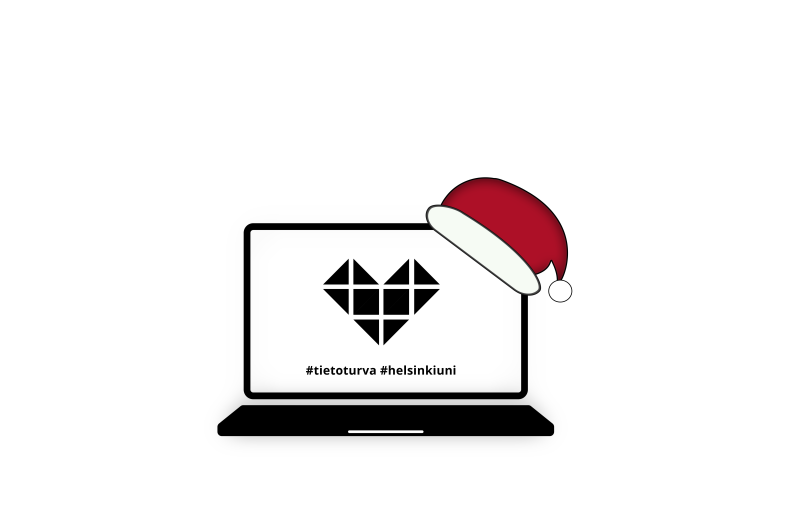Digital security at the university now – digital security review for university staff and students 1/2024

Digital Security at the University Now is a new review of topical matters related to information security and digital security at the University. From now on, the review will be published four times a year in Flamma and the Studies Service. We will include a selection of topical matters from the National Cyber Security Centre’s publications as well as the University’s digital security news.

On this review:
- News from the National Cyber Security Centre
- How to identify scam messages
- Holiday season reading tips from the information security team
1. News from the National Cyber Security Centre
In this section, we gather topical content from the latest publications and reviews of the National Cyber Security Centre.
- Recently reported scams (National Cyber Security Centre’s weekly review)
- See other news from the National Cyber Security Centre on the National Cyber Security Centre website under Information Security now.
2. How to identify scam messages
Scammers do not rest even during Christmas. Here are some tips on how to avoid falling victim to scam messages.
- Do not rush. Scams often have a sense of urgency, to lure the victim into making mistakes, such as giving their banking or user credentials or transferring money to the scammers. Take your time to check the authenticity of the message you have received.
- Be cautious about the offers you receive. If an offer, a prize or an opportunity sounds too good to be true, it probably is.
- Pay attention to details. Scam websites may look almost identical to genuine websites. For example, addresses may only differ by one character. The safest option is to enter the address of the website directly in the browser address bar and thus avoid clicking any links.
- Remember: no company, university, bank or authority asks for your password or banking credentials by email or phone.
If you receive a suspicious email, do not open it or any attachments or links it contains.
If you suspect that you have been scammed or believe that your University username and password have fallen into the wrong hands, contact the IT Helpdesk as soon as possible. You can find instructions regarding digital security in your daily life in the Suomi.fi service, for example.
3. Holiday season reading tips from the information security team
Looking for an interesting podcast? Listen to the Korkeakoulujen tietoturvaajat podcast
Korkeakoulun tietoturvaajat is a podcast about information security at higher education institutions (in finnish). In the latest episode, the expert guests were Jussi-Pekka Järvinen, Head of Training at Educational Technology Services, and Kenneth Kahri, Information Security Manager, both from the University of Helsinki.
Check out the episode in Soundcloud.
Listen to other episodes on the Korkeakoulujen tietoturvaajat podcast website. At the bottom of the page, you can also find podcasts, books and other publications related to digital security that have been recommended by the podcast guests. In addition to the University of Helsinki, the episode contributors in autumn 2024 have included Tampere University, the National Defence University, the University of Lapland and the University of Jyväskylä.